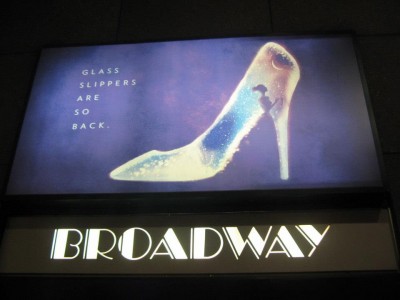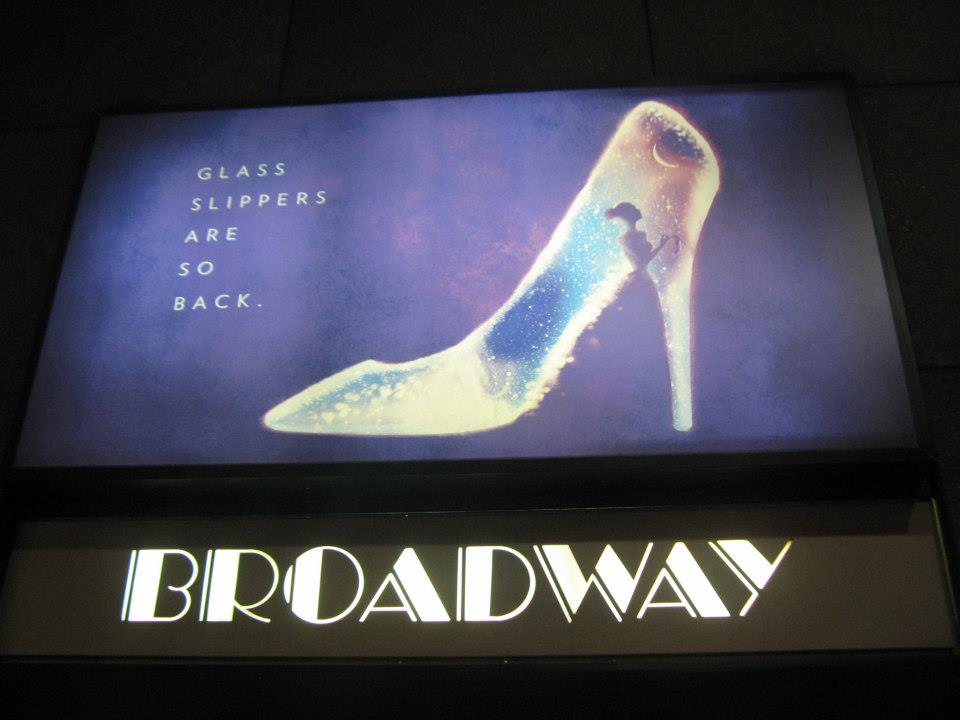
It’s the recent opening of Cinderella on Broadway, and excited crowds of kids and adults pour in to be taken in by the magic. The lure of witnessing a fairy tale live and breathing, and reliving those magical moments from childhood in the process, is enough to draw in most audiences. Like others who grew up watching Cinderella (repeatedly), I was intimately familiar with the Disney film and felt both excited (and nervous, to be honest) to see how the Rodgers & Hammerstein’s Broadway version would present the story.
Originally meant for television, Rodgers & Hammerstein’s Cinderella has been the subject of multiple TV productions, the first of which was a 1957 special with Julie Andrews. That was followed by a few stage productions over the decades, finally leading up to the current Broadway version, which opened on March 3, 2013 at the Broadway Theater. Unlike previous productions, however, the Broadway show is based on a new book written specifically for this production by Douglas Carter Beane, which – shall we say – spices the story up a bit.
From the moment the Chancellor says to the Prince of Cinderella, “You will give her some of your things so she will not start a revolution and take all your things,” I realized this would not be what many of us had expected.
Laced with political barbs and innuendos that modernize the story and create additional layers of meaning for the adults in the audience, Cinderella the Broadway Show is no longer the tale of a pretty young girl whose beauty charms the prince into marrying her. Good values, not simply beauty, capture the Prince’s attention at the ball, where he is expected to select his future wife. When all the ladies at the ball compete to see who can ridicule the other better, it is Cinderella who proposes to ‘play kindness’ instead, genuinely complimenting her opponents – a strategy that baffles the others.
Could it be that Cinderella was “Jewified,” I thought (in an admittedly self-centered moment)? That her values suddenly lined up with the values my Jewish upbringing instilled in me? That she had shed, in some small way, the Disney superficiality we have come to expect from fairytale romances, in favor of the things that really matter and are the trademarks of a biblically moral heroine – kindness, compassion, self-improvement?
Granted, the term “Jewified” might seem inaccurate, because Cinderella’s new values are similarly valued by most groups in contemporary society, and are in no way exclusive to Jews. That said, my own recollection of the values passed on through Jewish education has formed an association with their Jewishness, a sort of hat-tip to my educators, not a slight at other faiths. It is with this in mind that I approach Cinderella, identifying her characteristics with those of the biblical heroines.
The morality of these biblical characters was exemplified by their kindness and compassion. Think of Rebecca when she gave water to Abraham’s camels without being asked. A hardworking and selfless personality is celebrated in many fairy tales, but it is in this play, both contemporary and classical in tone, that those moral values really take a step forward.
When Cinderella encourages the Prince to listen to the common people, to help the poor, to open his eyes to the suffering around him, making him want to be a better person because of her, I finally understood their happy ending. It was based on something real – mutual respect, admiration, good values – and seemed to reflect everything I was taught as a child, not to mention books on Jewish marriage. (Of course, in Cinderella’s case, the gorgeous ball gown didn’t hurt, either.)
Even better? Cinderella isn’t the only one to have a relatively healthy relationship, at least in this version. When her step-sister falls in love with a revolutionary, their perfect date is spent volunteering at a soup kitchen. Impressive!
Cinderella is as much a fictional character as she is a role model, which means this kind of commentary can only go so far. Furthermore, the Prince’s exclamation to Cinderella — “I’ve found myself! You’ve shown me the way!” — seems unnecessarily exaggerated and more than a little trite: Really? You didn’t know who you were before you fell in love? That sounds… uh, a little creepy, if well-meaning. Even so, it is comforting that Cinderella’s latest incarnation is a slightly more realistic (and thoughtful) take on fictional romance, one with brains as well as heart. That’s why, as the show ended, I immediately leaped to my feet and, a big smile on my face, applauded as loudly as I could.

